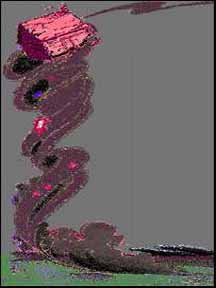Illustrated tornado from the book The Wizard of Oz
© W. R. Wright, Piglet Press Inc. (www.halcyon.com/piglet/)
Common Tornado Myths
Scientists once thought that you should open your windows
during a tornado so your house won't explode. The thinking behind this
idea is that the extreme low
pressure in a tornado would cause the air in
your house to explode. Opening your windows would let the air expand
without damaging your house. As it turns out, houses aren't as sealed as
they thought so the air would have no problem getting out. It turns out that
the strong winds associated with a tornado can lift the roof off a
house. Without the support of the roof, the wall are blown down and they
fall outward. The roof may be dropped back on the rubble or
some place nearby. This gives the impression that the house exploded.
Another common myth was that places were "protected" by a mountain or a
river. In reality, no place is safe. While weak tornadoes may not be
able to crest mountains or jump rivers, the strong ones can. Another
problem is the infrequentness with which tornadoes occur. People in a
town can draw a conclusion that since no tornadoes have ever come through
the town but a couple have happened right outside of town, then they must
be protected. The topic here is not protection; it's probability. A
town is small while the surrounding countryside "outside of town" is
large. Chances are that a tornado would strike in the larger area rather
than the smaller one. This can be a problem because people won't take
shelter if they think they're already safe.
You might also be interested in:
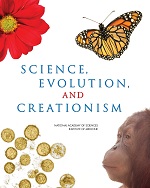
How did life evolve on Earth? The answer to this question can help us understand our past and prepare for our future. Although evolution provides credible and reliable answers, polls show that many people turn away from science, seeking other explanations with which they are more comfortable.
...more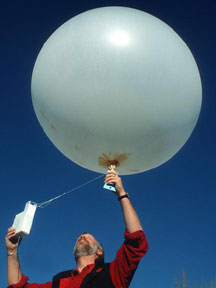
When you inflate a balloon or a tire, you are increasing the pressure on the inside of the object in order to "blow it up". Pressure is a scientific concept that applies to gases and liquids. Pressure
...more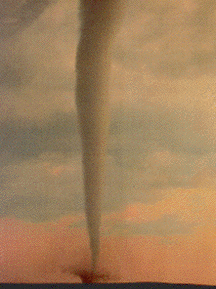
Tornadoes form from severe thunderstorms. They have a very high energy density which means that they are very destructive to a small area. They also don't last very long which makes them hard to study.
...more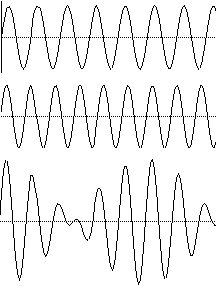
Sound travels in waves. These waves have both a frequency and an amplitude. The frequency is measured in hertz, which is one wave cycle per second. A cycle is a repeated pattern of positive and negative
...more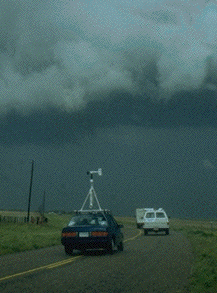
Storms chasers are different than storm spotters. Chasers travel around Tornado Alley looking for severe storms and tornadoes. This area in the Great Plains is the best for chasing. Besides having a lot
...more
A tornado is the most destructive force in nature; that doesn't mean it has the most energy. Thunderstorms which produce tornadoes can have 40,000 times as much energy as a tornado! Tornadoes are so destructive
...more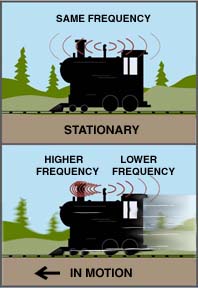
The Doppler effect was named after Christian Doppler, who first came up with the idea in 1842. He determined that the frequency of sound waves would change if either the source of the sound or the observer
...more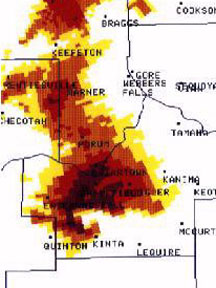
The short duration and complicated nature of tornadoes make them nearly impossible forecast. Meteorologists don't really know the specifics of how they form, but they do know what atmospheric conditions
...more
